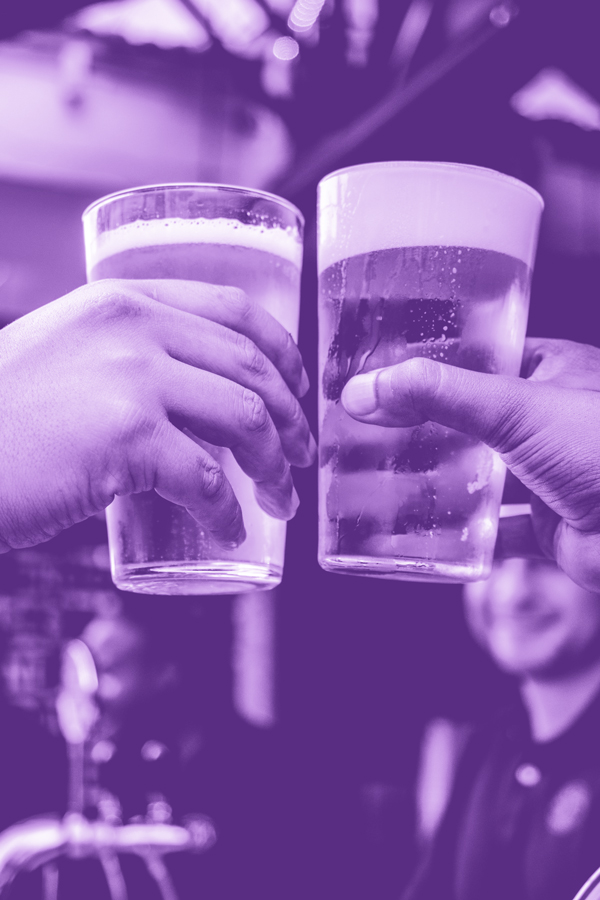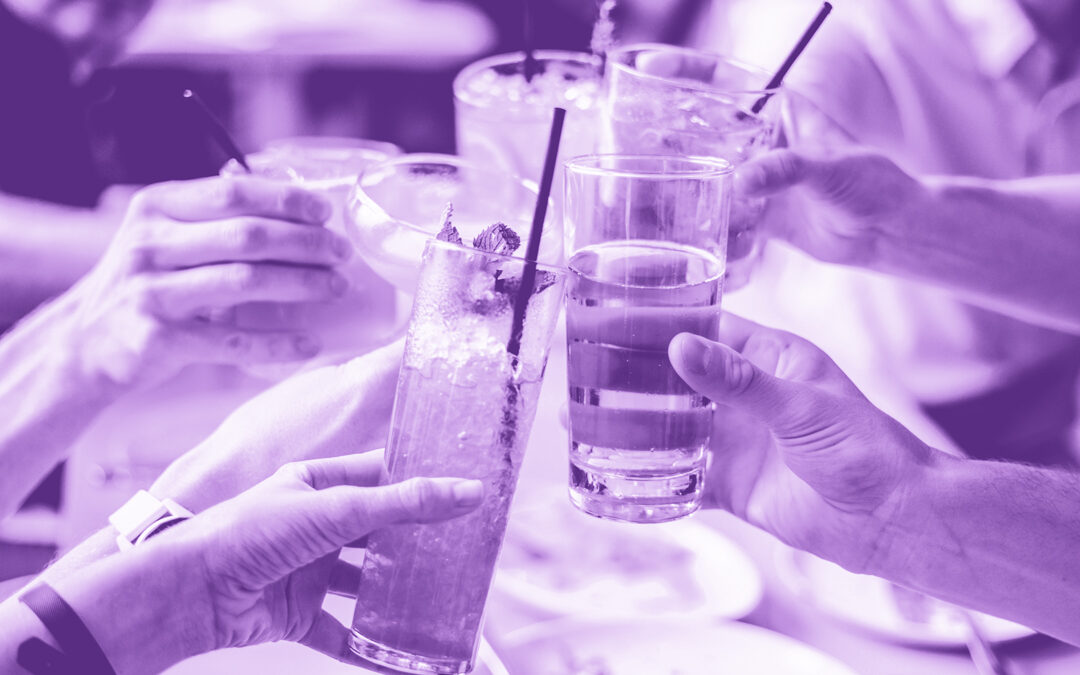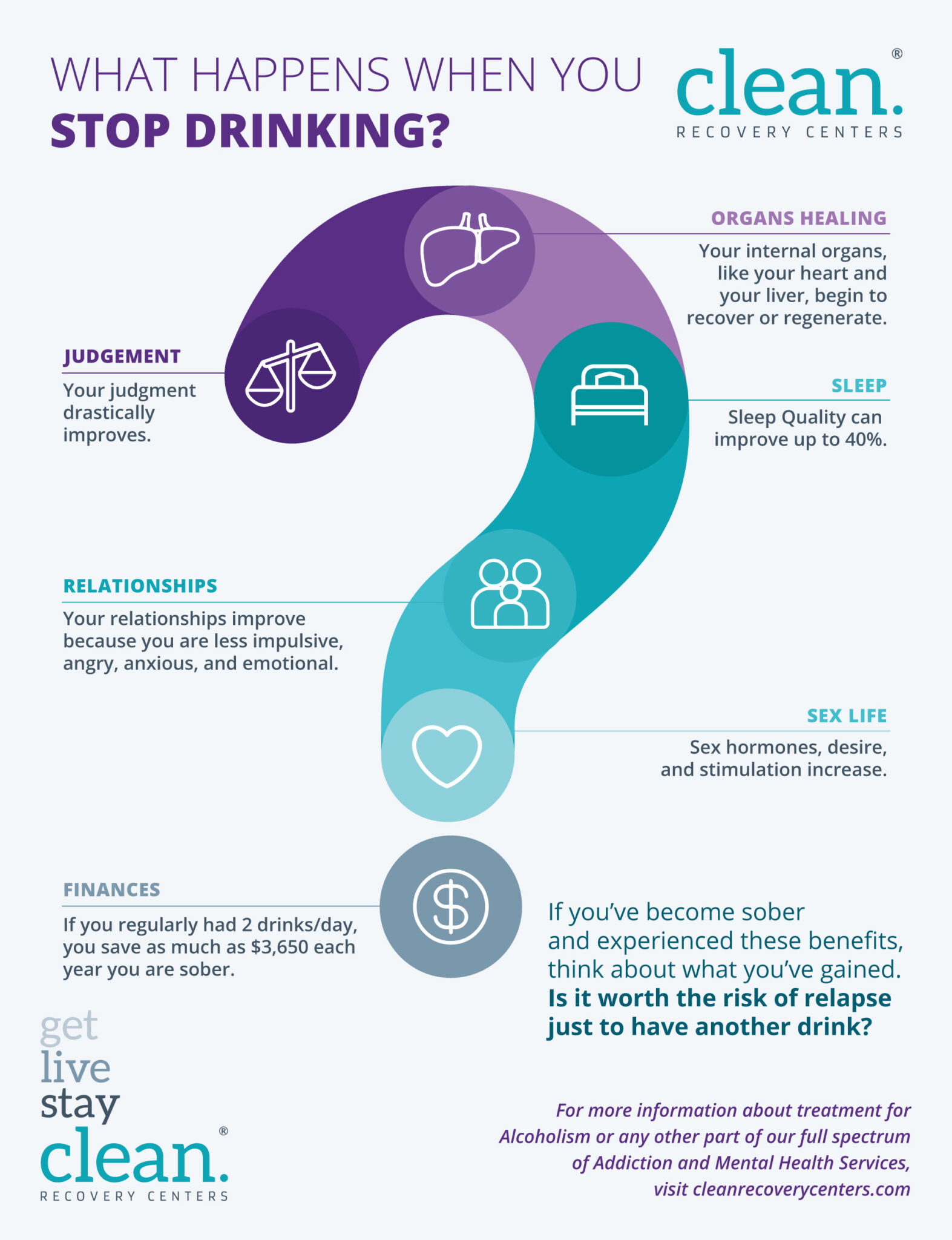Can Recovering Alcoholics Ever Drink Again? Abstinence vs. Moderation in Long Term Recovery
If you are reading this advice because you’ve reached a milestone in your sobriety, congratulations! Alcohol recovery is not easy for anybody, but those who have completed 30 days, one year, five years, or ten years of sobriety truly have an accomplishment to be proud of. According to NIH, 14.5 million people in the past year have suffered from an alcohol use disorder. This includes alcoholism and binge drinking. They go on to estimate that 80% of these drinkers run the risk of experiencing withdrawal symptoms after they quit drinking.
Knowing these statistics, why would any of these people choose to drink again? If you’re in recovery, you could probably guess. When explaining this concept to your non-alcoholic friends, though, you may have to give them more detail so that they can understand why you simultaneously want to be sober and wish you could drink at the same time.

Can I Start Drinking Again?
Can recovering alcoholics ever drink again? If you’ve crossed the hurdle of becoming sober, you may have received therapy, attended group sessions, or undertaken other treatment that has helped you maintain this new way of life. Now that your mind feels clear, you may begin to feel a little bit bored. What would happen if you took a drink again?
You may think, now that you’ve seen other “alcoholics”, that you weren’t doing so badly before: Maybe you didn’t have so much of a problem in the first place, and perhaps you could handle drinking in moderation. Before you go down that rabbit hole of rationalization and revising the past in order to taste alcohol again — and it truly can be a set of mental gymnastics that recovering alcoholics deal with on a daily basis to maintain their sobriety — read the following advice.
What Happens to Your Body When You Stop Drinking?
Let’s review the science behind quitting alcohol. As you likely know, alcohol can do a number on your brain, your liver, and your judgment. Here’s a quick overview of what happens when you stop drinking.
- Your judgment drastically improves
- Your internal organs, like your heart and your liver, begin to recover or regenerate
- Your behavior and relationships improve because you are less impulsive, angry, anxious, and emotional
- Your sleep and your sex life may improve
The benefits of quitting drinking are listed above. The drawbacks include the fact that you lose whatever feeling you got while drinking — perhaps you were self-medicating an untreated mental health condition, or maybe you just liked feeling intoxicated — and the fact that if you were a heavy drinker of hard liquor, you may suffer from serious withdrawal side effects like seizures, shakes, and even hallucinations. If you’re now in the process of quitting drinking and you’re noticing symptoms like this, make sure to get in touch with Clean Recovery Centers or your nearest medical professional to be evaluated as soon as possible. You may need medical help in your transition to sobriety to blunt the effects of withdrawal.
Could I Just Figure Out How to Drink in Moderation?
You may be hesitant to propose this topic to your therapist, your sponsor, or your friends in recovery for fear of judgment or even ridicule; however, there are no stupid questions when it comes to recovery. The more information you have, the easier it will be to find a path to sobriety. If you feel punished or put down for trying to learn about alcohol’s effect on your body or how to maintain your sobriety in a way that works for you, it may be time to reconsider working with whoever is treating you. You should feel empowered and not kept in the dark.
That being said, it’s not a good idea to take another sip of your drink of choice after you’ve become sober. It’s definitely easy to see why someone who just got sober would want to drink again: It feels good — at first. If you’ve been sober for long enough to forget the downside of binge drinking or chronic alcoholism, you can liken it to an unhealthy relationship in which you remember all the good experiences with the other person and minimize the bad times like fights, breakups, and unhealthy obsessions with getting back together. As a recovering alcoholic, you should remember that unlike non-alcoholics who can drink in moderation, you will likely never master this skill. And that’s not your fault.
Why Do I Keep Trying To Rationalize My Drinking?
Maybe it’s just the vodka. Maybe I should only drink white wine. Maybe I can have half a can of beer, but only on Friday night after six o’clock. You’re a master of rationalization when it comes to keeping alcohol in your life! There’s a huge downside to adopting this point of view: One drink can lead to another, and several drinks a week can lead to you convincing yourself that you’re fine and that you can handle drinking again. If you’re in this position, please take a long, rational look at this behavior pattern or seek out a friend or therapist who can help you do this.
If it’s been a long time since you’ve had a drink, you may have forgotten the downsides of drinking alcohol on a regular basis: The blackouts, stomach problems, headaches may be specters of your past. If you’ve caused a strain in your relationships, or if you’ve even lost a romantic partner or friend due to your drinking, you may not be thinking about this when you pick up a glass. If this sounds like you, try making a list of all the reasons you stopped drinking and got sober in the first place. You’ll need to keep it handy — like on your phone or on a little piece of paper in your wallet or purse — to pull out when you find yourself slipping. If the urge to drink strikes when you’re out, for example, read through the list before taking a drink.
How Can I Explain All of This to My Friends and Family?
If someone tells you that it’s fine for recovering alcoholics to drink in moderation, consider why this person is telling you this information. Are they a well-meaning friend who doesn’t really understand alcoholism and everything you’ve been through? Maybe they want to have a fun night out with you — like you used to have with them before you got sober. This person likely misses the camaraderie you used to have when alcohol was involved; they probably do not care whether you actually drink.
On the other hand, you may have relationships with people who are angry that you don’t drink anymore. Maybe they feel like you’ve left or abandoned your friendship when you no longer go out with them. Try to put yourself in this person’s shoes, and don’t give up your sobriety to maintain a friendship. Remember: A real friend will not ask you to start drinking again to spend time with them. If they truly don’t understand or blame you for your actions that are keeping you healthy (and alive!), it may be a good time to look for healthier relationships.
If, after reading the above, you’re wondering if you, as a recovering alcoholic, can take up drinking again and lead a completely different life than you led when you were drinking: The answer is no, probably not. We know this is a disappointing point to keep hammering home, but you’re better off safe than sorry. Recovery is a process, and it’s a lifelong one. Keep in mind your goals for the future, the progress that you’ve made thus far, and be proud of the sobriety you’ve attained. If you would like to talk to someone about alcohol use disorder, the urge to drink, or anything related to your alcoholism treatment, call us at 888-330-2532 today.



